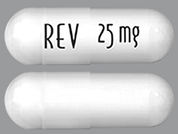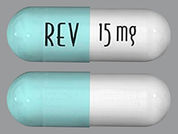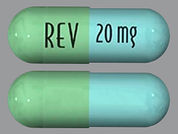Revlimid
Lenalidomide
What is Revlimid used for?
Lenalidomide is used to treat various types of cancers. It works by slowing or stopping the growth of cancer cells. It is also used to treat anemia in patients with certain blood/bone marrow disorders (myelodysplastic syndromes-MDS). Lenalidomide may lessen the need for blood transfusions. Lenalidomide is not recommended for the treatment of a certain type of cancer (chronic lymphocytic leukemia) because of the increased risk of serious heart-related side effects and death. If you have this type of cancer, talk to your doctor about the risks of using this medication.
CHEMICAL NAME
DRUG TYPE
CancerRevlimid Prices
Searching for the lowest prices
What does Revlimid look like?
View all Revlimid Image Information (4)Revlimid Frequently Asked Questions
This section contains uses of this drug that are not listed in the approved professional labeling for the drug but that may be prescribed by your health care professional. Use this drug for a condition that is listed in this section only if it has been so prescribed by your health care professional.
This drug may also be used for lupus.
IMPORTANT: HOW TO USE THIS INFORMATION: This is a summary and does NOT have all possible information about this product. This information does not assure that this product is safe, effective, or appropriate for you. This information is not individual medical advice and does not substitute for the advice of your health care professional. Always ask your health care professional for complete information about this product and your specific health needs.



